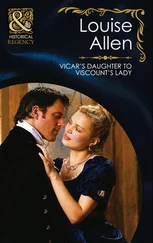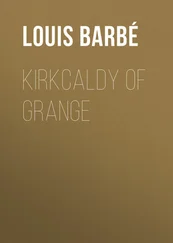Louis Barbé - Viscount Dundee
Здесь есть возможность читать онлайн «Louis Barbé - Viscount Dundee» — ознакомительный отрывок электронной книги совершенно бесплатно, а после прочтения отрывка купить полную версию. В некоторых случаях можно слушать аудио, скачать через торрент в формате fb2 и присутствует краткое содержание. Жанр: foreign_antique, foreign_prose, на английском языке. Описание произведения, (предисловие) а так же отзывы посетителей доступны на портале библиотеки ЛибКат.
- Название:Viscount Dundee
- Автор:
- Жанр:
- Год:неизвестен
- ISBN:нет данных
- Рейтинг книги:3 / 5. Голосов: 1
-
Избранное:Добавить в избранное
- Отзывы:
-
Ваша оценка:
- 60
- 1
- 2
- 3
- 4
- 5
Viscount Dundee: краткое содержание, описание и аннотация
Предлагаем к чтению аннотацию, описание, краткое содержание или предисловие (зависит от того, что написал сам автор книги «Viscount Dundee»). Если вы не нашли необходимую информацию о книге — напишите в комментариях, мы постараемся отыскать её.
Viscount Dundee — читать онлайн ознакомительный отрывок
Ниже представлен текст книги, разбитый по страницам. Система сохранения места последней прочитанной страницы, позволяет с удобством читать онлайн бесплатно книгу «Viscount Dundee», без необходимости каждый раз заново искать на чём Вы остановились. Поставьте закладку, и сможете в любой момент перейти на страницу, на которой закончили чтение.
Интервал:
Закладка:
The question of Claverhouse’s scholarship is not one of special moment in itself; yet it acquires some interest from the animated controversy to which it has given rise, and which originated in a hasty comment made by Sir Walter Scott. The novelist, after referring to a newly published letter, casually added, ‘Claverhouse, it may be observed, spells like a chambermaid.’ Subsequent writers, interpreting this into a general estimate of Dundee’s educational acquirements, repeated the petty and irrelevant charge, in season and out of season, almost as though the quality of his orthography constituted a test by which his whole character was to be estimated. That Claverhouse was erratic in his spelling cannot be denied. It may be questioned, on the other hand, whether, in this respect, he displayed greater disregard for orthography than the average gentleman of his day. If he wrote ‘I hop’ for ‘I hope,’ ‘deuk’ for ‘Duke,’ ‘seased’ for ‘seized,’ ‘fisik’ for ‘physic,’ and ‘childring’ for ‘children,’ it does not require a very extensive acquaintance with the correspondence of the seventeenth century to know that dukes and earls, and even lawyers and divines, indulged in vagaries equally startling. But, if the arbitrary and occasionally whimsical spelling of his letters affords no proof of exceptional ignorance, the vigour, clearness, and directness of the style in which they are written give them a place rather above than below the epistolatory standard of the time.
After leaving St Andrews, Claverhouse, following the example set by so many generations of his countrymen, and notably by his illustrious kinsman, the Marquis of Montrose, repaired to the Continent, with the intention of devoting himself to a military career. According to his earliest biographer, ‘an Officer of the Army,’ he ‘spent some time in the French service as a volunteer, with great reputation and applause.’ This is repeated rather than confirmed by the author of the ‘Memoirs of Sir Ewan Cameron of Lochiel,’ with the addition, it is true, of the statement that it was ‘under the famous Marishall Turenne’ the young soldier received his first training. Dalrymple, without supplying precise information, records that Claverhouse ‘entered the profession of arms with an opinion he ought to know the services of different nations, and the duties of different ranks,’ that, ‘with this view he went into several foreign services,’ and that ‘when he could not obtain a command,’ he served as a volunteer.
The most trustworthy evidence in support of the statement that Claverhouse served and fought in the armies of France, is that of James Philip of Almerieclose, his standard-bearer at Killiecrankie, who, in later years, devoted a Latin epic to the memory and the praise of the gallant Graham. Referring to his hero, he says, ‘The French camps on the Loire, where Orleans lifts her towers, and on the Seine, where her increased waters lave the city of Paris, have beheld him triumphant over the defeated enemy, stained with the blood-marks of relentless war.’ The passage is, unfortunately, one in which the author has so obviously taken poetical liberty with historical facts, that his words cannot be taken literally. As the editor and translator of the poem points out, ‘there could have been no fighting on the Seine or Loire.’ Whether, on the other hand, it be probable that ‘camps of instruction were there, from which young soldiers were sent to the front,’ is a matter of little moment. Even without such explanation the passage is valuable as evidence. It may be accepted as definitively establishing the fact that it was in France Claverhouse first learnt the art of war.
It has been further conjectured that he may have belonged to the contingent of 6000 English and Scottish troops, which, under the leadership of Monmouth, joined Turenne’s army in 1672. If such were the case, the duration of his service must have been brief. There is evidence to prove that, by the summer of 1674, he had transferred his allegiance to William of Orange, and that he was present at the battle of Seneff, fought in August of that year; and there are grounds for believing that he was directly instrumental in rescuing the Prince from a perilous situation.
Macaulay, it is true, rejects the story as ‘invented’ by some Jacobite many years after both William and Dundee were dead. That, however, appears to have been hastily done, on the erroneous assumption that the account of the alleged incident went no further back than the Memoirs of 1714. They, indeed, do state of Claverhouse, that, ‘at the battle of St Neff, 1674, when the Prince of Orange was dismounted, and in great danger of being taken, he rescued him, and brought him off upon his own horse.’ But this does not constitute the sole authority. In addition to it, there is that of the Memoirs of Lochiel. It is the more valuable that the author bases his own narrative on the Latin epic to which, in the following passage, he refers as one of the sources of his compilation. ‘Besides the assistance I have from the Earl of Balcarres his memoirs of the wars, and the several relations I have had of them from many who were eyewitnesses, I have before me a manuscript copy of an historical Latin poem called “The Grameis,” written in imitation of Lucan’s “Pharsalia,” but unfinished, by Mr Philips of Amryclos, who had the office of standard-bearer during that famous expedition’ in the Highlands. From Philips he not only draws the incident of Seneff, but also gives a rough translation in English verse, of the passage commemorating this ‘vigorous exploit.’ It runs thus: —
‘When the feirce Gaule, thro’ Belgian stanks yow fled,
Fainting, alone, and destitute of aid,
While the proud victor urg’d your doubtfull fate,
And your tir’d courser sunk beneath your weight,
Did I not mount you on my vigorous steed,
And save your person by his fatal speed?’
Until recently, Philips’ poem existed in manuscript only. That circumstance consequently gives the value of distinct contemporary evidence to another effusion, of which the author cannot be suspected of having drawn from the ‘Grameis’ his allusion, unfortunately only a vague one, to the exploits of Claverhouse whilst serving under the Prince of Orange. Moreover, it was as early as January 1683, that is several years before the occurrence of the leading events celebrated in the ‘Grameis,’ that the anonymous rhymer published ‘The Muse’s New Year’s Gift, and Hansell, to the right honoured Captain John Graham of Claverhouse.’ In that poem the following lines are to be found: —
‘I saw the man who at St Neff did see
His conduct, prowess, martial gallantry:
He wore a white plumach that day; not one
Of Belgians wore a white, but him alone;
And though that day was fatal, yet he fought,
And for his part fair triumphs with him brought.’
Once, at least, during the period of his military service under the Dutch, Claverhouse returned to Scotland. He was in Edinburgh in March 1676. From there he wrote two letters to John Stewart, younger of Garntully, about the purchase of a horse and the gift of a ‘setting dogue.’ By the beginning of the following month he had again left the country; for, in a letter written by his directions after his hurried departure, and dated the 4th of April, the hope is expressed that ‘this day hie is in Holland.’ He was not to continue in the pay of the States-General much longer. The very next year he resigned his commission, and came home to solicit employment in the British Army. To account for this apparently sudden determination, the author of the Memoirs of Lochiel relates a highly dramatic incident, for which, it must be added, there is no authority but his own, and of which the details are not such as to command unhesitating belief. After having given his account of William’s rescue by Claverhouse, at Seneff, the chronicler continues: —
Читать дальшеИнтервал:
Закладка:
Похожие книги на «Viscount Dundee»
Представляем Вашему вниманию похожие книги на «Viscount Dundee» списком для выбора. Мы отобрали схожую по названию и смыслу литературу в надежде предоставить читателям больше вариантов отыскать новые, интересные, ещё непрочитанные произведения.
Обсуждение, отзывы о книге «Viscount Dundee» и просто собственные мнения читателей. Оставьте ваши комментарии, напишите, что Вы думаете о произведении, его смысле или главных героях. Укажите что конкретно понравилось, а что нет, и почему Вы так считаете.












